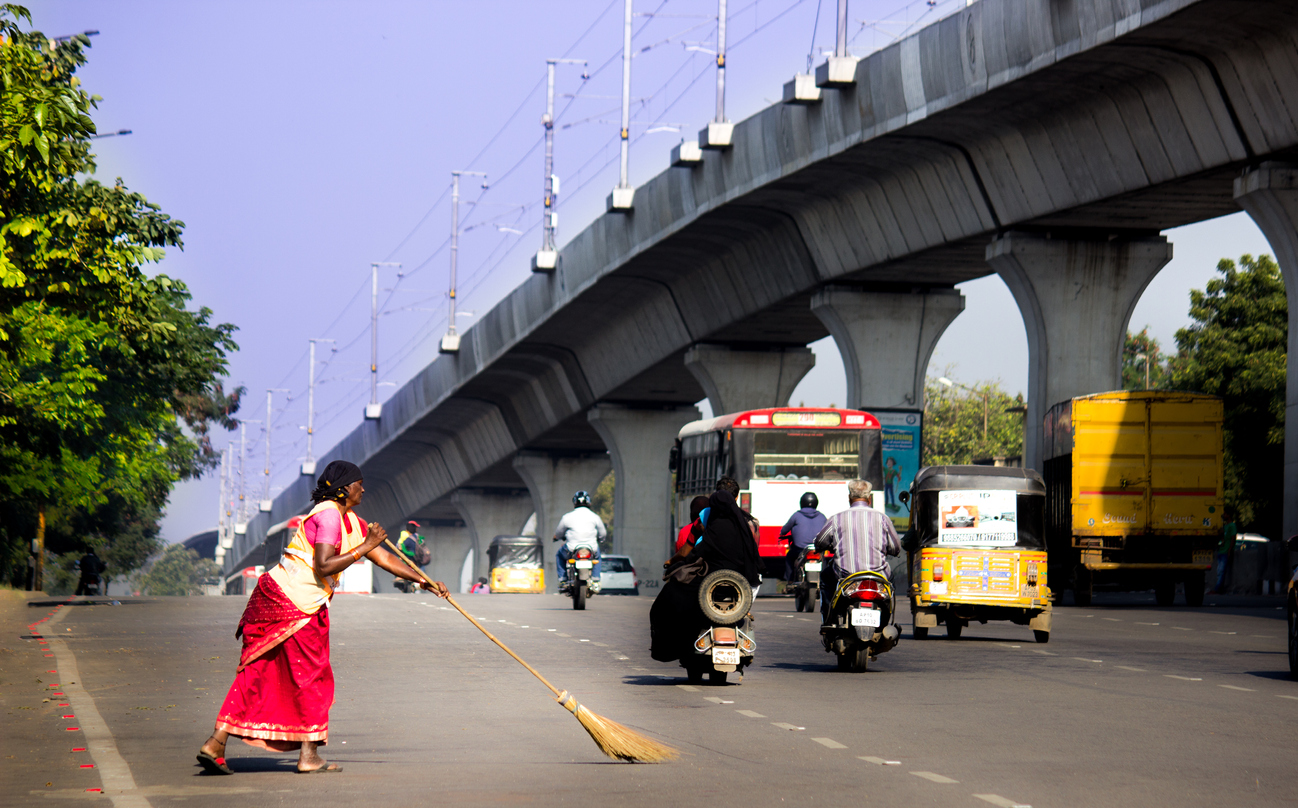
Study: Sanitation workers, waste-pickers and security guards exposed to high levels of pollution

According to a study released on Friday (June 30), approximately 97% of sanitation workers, 95% of waste-pickers, and 82% of security guards in the country are exposed to air pollution while performing their duties.
The study, conducted by Chintan environmental research and action group, is an assessment of the relationship between air pollution and incidence of respiratory illness for three essential occupational groups waste-pickers, sanitation workers, and security guards.
Also Read: In last 8 yrs, pace of development not gone down, but pollution level dipped in Delhi: Kejriwal
The research further suggested that more than 60 per cent of sanitation workers, 50 per cent of waste-pickers and 30 per cent of security guards “did not know about PPE kits that could reduce their exposure (to pollution).”
“Abnormal pulmonary function results were recorded in 75 per cent waste-pickers, 86 per cent sanitation workers and 86 per cent security guards. In contrast, 45 per cent of participants of the control group had abnormal lung function,” the study said.
“17 per cent waste-pickers, 27 per cent sanitation workers and 10 per cent security guards were found to be suffering from severe lung illnesses, it added.
Based on the findings of the study, which was conducted in consultation with the three groups, and health and air pollution experts, the NGO has recommended provisions for Personal Protective Equipment (PPE) and training on the efficient use of PPE kits.
Also Read: World Environment Day 2023: Beat plastic pollution with 20 simple steps
“Training on gargling after duty hours to effectively remove dust particles from nasal and throat cavities should be conducted. Hand and face washing facilities near place of work should be mandated and heated bottles should be provided during winters to reduce open burning,” the study said.
For pollution management, it further suggested that sanitary inspectors should be delegated power to report and fine waste burning and usage of mechanised sweepers on larger arterial roads.
To limit exposure to pollution, the study suggested, work shifts should be changed during hazardous AQI. “All resting places should be engineered at levels above the tail-pipe level of SUVs and there should be annual health check-ups as well,” it added.
Also Read: Yamuna pollution in Mathura, Agra: NGT directs UP chief secretary to ensure remedial action
Suggesting a few systematic shifts, the study said that composting must be mandated to prevent landfill fires and in-situ horticulture waste management systems should also be set up.
“Guidelines on occupational health protection must be issued by Swachh Bharat Mission. Drones and other imagery must be used to identify garbage burning and bioremediation strategies should be executed to prevent landfill fires,” the study suggested.
(With agency inputs)


